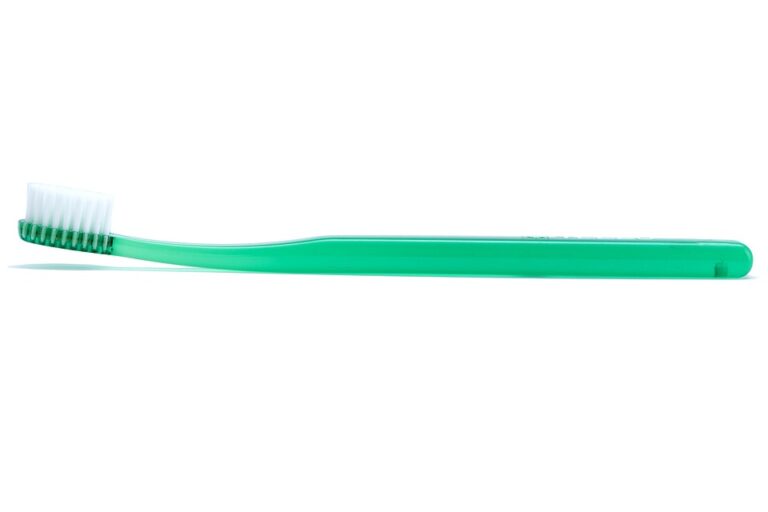
Can Dental Problems Cause High Blood Pressure?
I used to think my health was in different boxes. You had heart health, stomach health, mind health, and then, in a little corner all by itself, was teeth health. I thought if my teeth don’t hurt and I can eat a steak, I’m good. But then I had a normal check-up that was a big shock, and I saw how very wrong I was. The truth is, your mouth ain’t Las Vegas; what happens in there don’t stay in there. I found a surprising and strong connection between my mouth health and my blood pressure, and finding that out changed how I look at my health.
This ain’t just a bunch of doctor facts. This is my story. It’s about the wake-up call I got at the doctors, the questions I started to ask, and the easy, strong steps I took that made my gums and my heart better, too. If you ever had a high blood pressure number or you wonder if your gums that bleed sometimes are a big deal, this article is for you. I’m gonna tell you exactly what I learned, in easy words, so you can keep yourself healthy in a way you never thought of.
My Wake-Up Call: A Surprise Number and a Bad Feeling
It all started on a Tuesday. I was at my family doctor for a normal check-up. I felt fine. A little stressed from work, yeah, but who ain’t? The nurse put the thing on my arm, it squeezed tight, and she wrote down numbers. When the doctor come in, he looked at my paper with a little frown. "Your blood pressure is a bit high," he said, all calm. "145 over 92. It’s not an emergency, but we need to watch it."
I was shocked. I’m in my 40s, I work out a few times a week, and I try to eat pretty good. High blood pressure? That was for other people, old people, people who didn’t take care of their selfs. He asked the normal questions about salt, stress, and if it runs in my family. We made a plan for me to check it at home and come back in a month.
Driving home, my mind was going crazy. What could be causing this? As I thought about the last few months, I remembered something I was trying to ignore. For months, I’d see a little pink in the sink when I brushed my teeth. My gums felt a bit sore, maybe even a little swole. I told myself it was from brushing too hard. I even had a pain in one of my back teeth that wouldn’t go away, and I was just hoping it would stop on its own.
Could them things be connected? It sounded crazy. A toothache give you a heart problem? It sounded like an old wives’ tale. But the idea wouldn’t go away. That night, I started looking online and couldn’t stop, and the more I read, the more I saw my feeling wasn’t so crazy. I wasn’t just finding one or two little articles; I was finding a lot of science stuff showing a real, for-sure connection between bad mouth health and high blood pressure. This was my wake-up call. My body wasn’t made of different parts in boxes; it was all one connected thing. And I was ignoring a real important part.
The Science Made Simple: How a Mouth Problem Becomes a Whole Body Problem
Once I thought there was a connection, I had to understand how it worked. Talking with my dentist and a lot of reading at night helped me figure it out. It’s not as hard as it sounds, and it’s mostly about two things: swelling and germs.
The Fire of Swelling
Think of swelling like your body’s fire department inside you. When you get a cut, your body sends healing cells there to fight germs and start fixing it. This makes it red, puffy, and sore. This is a good thing; it’s a short-time thing.
But what if the “fire” don’t never go out? This is called long-time swelling. When you got mouth problems like gum disease, your mouth is always a little bit swollen and fighting. Your gums are always trying to fight off germs that won’t go away.
Here’s the problem: This fire don’t stay in your mouth. The swelling chemicals from your gums go into your blood and travel all over your body. This all-over body swelling can bother the soft insides of your blood tubes. When your blood tubes are always bothered, they can get hard and skinny, making it tougher for blood to get through. Think about pushing water through a big garden hose versus a skinny straw. Your heart has to pump much harder to get blood through hard, skinny tubes, and that more push is, simple, high blood pressure.
Germs on the Move
The second part is even more clear. Our mouths is full of germs—hundreds of kinds, good ones and bad ones. When your gums are healthy, they make a tight wall around your teeth, keeping the bad germs out of your body.
But with gum disease, that wall is broken. The gums get swollen and make little pockets between the teeth and gums. These pockets are a good place for bad germs to grow. Even worse, the swollen gums are full of tiny blood vessels that are leaky. This makes an easy way for them bad germs to get out of your mouth and into your blood.
When these germs are traveling in your blood, they can cause damage a few ways:
- Hurting Things Directly: Some germs from gum disease can stick right to the walls of your blood tubes and help build up gunk, which is a big reason for high blood pressure and heart problems.
- Making More Swelling: Just having these germs in your blood makes your body’s defense system ready to fight, which makes that all-over body swelling even worse.
I finally got it. My bleeding gums wasn’t just a small problem; they was like an open door, letting a little bit of germs and swelling signals into my body all the time, making my heart work harder.
Gum Disease (Periodontitis): The Main Bad Guy That Connects Your Mouth and Heart
When I finally went to the dentist (I should have gone a long time ago), he looked at my gums and said the word I was not wanting to hear: periodontitis.
I’d heard of gingivitis, which is the early gum disease that you can fix. That’s when you see pink in the sink. I learned I let my gingivitis turn into periodontitis, which is much worse.
What Is Periodontitis, Really?
My dentist told me with an easy example. Think of your teeth like posts in the ground. The ground is your jaw bone, and the gums are the dirt and grass that cover it and hold it all tight.
- Gingivitis: This is like the grass gets weedy right around the posts. The gums are swollen and might bleed, but the bone underneath is still okay.
- Periodontitis: This is when the weeds (germs) get so bad they start to hurt the dirt. The infection goes deeper, making pockets around the teeth and starting to break down the bone that holds them in.
This breaking down is what makes periodontitis the number one mouth problem in the high blood pressure story. The deeper the pockets, the more germs live there. The more bone is gone, the worse the long-time swelling gets.
I read studies that proved this is true. One study said people with medium to bad periodontitis had a much bigger chance of having high blood pressure than people with healthy gums. What really got me was another study that showed that treating the gum disease really made blood pressure go down. It wasn’t just a connection that went one way; it was a connection you can fix. Proper dental care wasn’t just about saving my teeth; it could really lower my blood pressure.
More Than Gums: Can Bad Teeth and Infections Raise Blood Pressure Too?
Periodontitis gets all the talk, but I wondered about my other problem: that sore back tooth. Could a simple cavity be part of the problem?
The answer is a big yes. It works in a similar way, but a little different.
From Cavity to a Whole Body Problem
A cavity is a germ infection that eats away your tooth. If you don’t get it fixed, the bad part can go all the way to the middle of the tooth, where the pulp (the nerve and blood parts) is. When this part gets infected, you often get a tooth abscess.
An abscess is a pocket of pus—a lot of germs, dead stuff, and white blood cells. It’s a sudden, and often very painful, sign of a big infection. And just like with periodontitis, that infection don’t stay put.
The germs from an abscess can easy get into your blood from the end of the tooth’s root. This can cause:
- A Jump in Swelling: An abscess is a big emergency for your body’s defenses. It sends out tons of swelling signals, which can cause a quick, but big, jump in blood pressure.
- More Stress and Pain: Let’s be real, an abscess hurts. A lot. Pain stresses out your body, and we know stress causes high blood pressure. The pain signals themselves can turn on your body’s “fight or run” mode, making blood tubes smaller and your BP higher.
So, that toothache I was ignoring, it wasn’t just a problem right there. It was a little infection factory, always pumping germs and stress signals into my body, adding to the stress on my heart and blood system.
It Goes Both Ways: How High Blood Pressure Can Hurt Your Mouth Health
Here’s something that really surprised me. I was so focused on how my mouth was hurting my body, but it can go the other way, too. High blood pressure, and even some of the medicines for it, can hurt your mouth health.
Some common blood pressure medicines, especially calcium channel blockers, can make your gums get all puffy and grow too much. This is called gingival overgrowth. This makes it super hard to clean your teeth right. The puffy gums can make new, hard-to-clean pockets where germs can grow. The funny thing is, this raises your risk for the same gum disease that can cause high blood pressure to begin with!
It’s a vicious cycle. Bad mouth health helps cause high blood pressure, and then the medicine for high blood pressure can make your mouth health worse. This made me see I had to look at my health all together. I couldn’t just work on one thing.
What I Did: The Real Steps I Took for a Healthier Mouth and Body
Now that I knew all this new teeth information and the doctor told me I had periodontitis, it felt like a lot to handle, but I also felt like I could do something. I worked with my dentist and my doctor to make a plan. Here’s what I did:
Step 1: Get a Pro Deep Cleaning (Scaling and Root Planing)
This was the first and most important step. My dentist said I needed a thing called scaling and root planing. It’s like a deep cleaning that goes down under the gums.
- Scaling: The hygienist took off all the plaque and tartar (hard plaque) from my teeth, from the top and under the gums.
- Root Planing: This was smoothing out the roots of my teeth. Rough roots are a magnet for germs, so smoothing them helps the gums stick back to the teeth and closes them nasty pockets.
It wasn’t the most fun time I ever had, but it was something I really needed. It was like I pushed a reset button for my mouth health.
Step 2: I Had to Change How I Clean My Teeth at Home
My old way of “brush for a minute and floss sometimes” wasn’t good enough no more. I got serious about my daily dental care.
- Brushing: I got an electric toothbrush, my hygienist said it gets plaque off better. I started brushing for a full two minutes, two times a day, and I made sure to point the brush at my gums.
- Cleaning Between Teeth: This was a game-changer. I started flossing every single night, no matter what. For some bigger spaces, I use little brushes called interdental brushes. The point is to break up the groups of germs that grow between your teeth every day.
- Special Mouthwash: My dentist gave me a special mouthwash to help kill germs in my mouth while my gums was healing.
Step 3: Fix the Bad Tooth
That sore tooth couldn’t be ignored no more. The decay was bad, and after a root canal to clean out the infection, the tooth needed a crown to protect it. My dentist was great. He told me how dentist work is very high-tech now. He used a digital scanner to make a perfect 3D picture of my tooth—no more of that goopy stuff in my mouth! He sent the picture to a special digital dental lab. He even said it was an emax dental lab, which are known for making a super strong fake tooth that looked real. A week later, I had a new crown that felt and looked totally normal. The thing that was causing the long-time infection and pain was gone for good.
Step 4: Check My Blood Pressure and Go Back to the Doctor
While all this was happening, I kept checking my blood pressure at home. In just a few weeks after my deep cleaning and better home care, I started seeing a change. The numbers were slow, but always going down. It wasn’t a magic fix overnight, but the change was for sure.
When I went back to the doctor in a month, he was happy. My number was down to 130/85. It was still a little high, but a big, big change. He told me to keep up the great work with my mouth health and keep on with our plan for diet and exercise.
Building Your Health Team: Why Your Doctor and Dentist Should Work Together
My experience taught me one of the most important lessons of my life: your doctors need to be a team. My doctor now asks about my mouth health, and my dentist knows I had high blood pressure.
This talking is super important. If your dentist knows you have high blood pressure, they can watch for problems from your medicine. If your doctor knows you’re getting a lot of dental work, they know you might have swelling for a little while that could change your blood pressure numbers.
Don’t be scared to help them talk to each other. Tell your dentist about your health problems and medicines. Tell your doctor about any mouth problems you’re having, even if they seem small. You are the boss of your own health, and your doctor and dentist are your best helpers. For big problems with all the teeth, some dentists even work with a high-tech arch dental lab to plan it out, which just shows how all of health care can work together now.
Final Thoughts: The Biggest Thing I Learned
Looking back, that high blood pressure number was a blessing in disguise. It made me stop thinking of my body as a bunch of different parts and see it how it is: one amazing, connected body where everything is linked.
The connection between mouth problems and high blood pressure is real, science proves it, and the best part is, it’s something you can do something about. Taking care of your mouth ain’t just about having a nice smile or not getting a toothache. It’s a basic part of taking care of your heart and your whole body.
I started out scared and confused, but now I feel like I’m in charge. By taking small steps all the time to make my mouth healthier, I saw a real change for the better in a big sign of my health. If this story sound like you—if you have bleeding gums, a tooth you been ignoring, or worries about your blood pressure—I’m telling you, don’t wait. Make that appointment. Ask the questions. Take control. It’s one of the best things you’ll ever do for your health.








